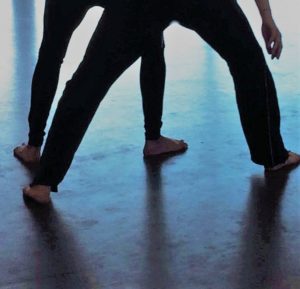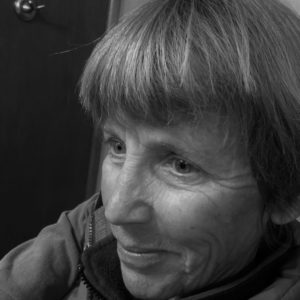 Mr. Barclay’s Dancing School met every Wednesday afternoon in the ballroom of the Pierre Hotel in New York City. There, under the gaudy chandeliers and watchful eyes of our instructors, we learned the rituals designed to secure us future husbands, children and happiness. At the same time, across the Pacific, the war in Vietnam was heating up, and on our home shores a violent struggle for equal rights, a hand-to-hand combat in certain cities of the South and North, was wreaking necessary havoc on the social fabric of our country. “Kick up those legs!” cried Mr. Barclay’s assistant, Miss Pamela. She wore a dress that resembled a golden tutu and shoes that came to a knife-like point at the toe. Yet with a naïve optimism that could only brand her as a throwback, a Neanderthal, she gave the impression that if we learned a proper Charleston the whole world would be our oyster.
Mr. Barclay’s Dancing School met every Wednesday afternoon in the ballroom of the Pierre Hotel in New York City. There, under the gaudy chandeliers and watchful eyes of our instructors, we learned the rituals designed to secure us future husbands, children and happiness. At the same time, across the Pacific, the war in Vietnam was heating up, and on our home shores a violent struggle for equal rights, a hand-to-hand combat in certain cities of the South and North, was wreaking necessary havoc on the social fabric of our country. “Kick up those legs!” cried Mr. Barclay’s assistant, Miss Pamela. She wore a dress that resembled a golden tutu and shoes that came to a knife-like point at the toe. Yet with a naïve optimism that could only brand her as a throwback, a Neanderthal, she gave the impression that if we learned a proper Charleston the whole world would be our oyster.
We were crazy with innocence, waltzing and Lindy-hopping to a live orchestra at the Pierre, until one afternoon Miss Pamela introduced us to a “fast dance” as she called it. It was anything but fast. She stood in the middle of the dance floor, welded to it, her usually liquid limbs frozen but for a slight jiggling of one leg. Her tetanic hands batted the air awkwardly and her smile seemed to crack with a terrible foreboding. We didn’t know it yet, but she did. The Frug, the Hitchhiker, the Monkey and, before that, the Twist—these were all the beginning of the end. They were dances you could do alone, with no one’s sweaty hand in yours. They were without history, without structure, without precedent. They acknowledged the existence of hips and they required us, young people on the verge of adolescence, to move in a way that felt natural, fluid and free. Danger, said a voice inside Miss Pamela and Mr. Barclay. Teach these abominations of fast dances if you must, but know they are a harbinger of restive times to come.
That prediction was not false, but late in arriving. Unease and upheaval were already firmly in place by the time Miss Pamela enacted her arthritic Frug. Though we were still children, some of us understood that dancing the old dances was the furthest thing from our future. And the boys with their salty body odor and Brylcreemed hair, their pudgy hands and clumsy feet—they had a different future to consider, though few of them knew it. Otherwise they might have asked, “How would the Charleston or cha-cha save them from the draft board and the jungle?”
What we in our youthful ignorance didn’t understand was the incendiary history of dancing. Outlawed, vilified, banned in every major religion, it should have appealed mightily to our growing sense of rebellion. Instead, it was what we rebelled against. Unacceptable to me were the required white gloves, the too-tight shoes and the business of dresses—always designed for someone else’s body. The dancing itself was less bothersome and mostly didn’t involve boys. There were never enough boys to go around so Ruth Sylvester and I generally and quite happily danced with each other.
A few years earlier, when my mother was in the hospital giving birth to my youngest brother, my father took the older kids—my sister and brother and me—to the movies, something we had never done before. We saw West Side Story, and it changed our lives. My brother was only 6 years old, but he spent the next year snapping his fingers and pretending he was either a Shark or a Jet looking for a rumble. My older sister was 10 and began to spend more time in front of the mirror, taking on the dreamy-eyed look of Maria. I was 8 and hadn’t yet given the world much thought. I hadn’t given much thought to New York City or the neighborhood where I lived or the neighborhoods where others lived. Difference hadn’t occurred to me yet, at least not as a separating force.
I remember sitting rapt in the movie theater, my short legs swinging with excitement as I watched Riff and Bernardo dance through the streets of New York, through the alleys and empty parking lots of the city where I, too, lived. Behind them came the chorus of Sharks and Jets, moving in their wake like ocean waves, spinning and leaping and fighting, street scene after street scene marked with a balletic violence. Difference. The Puerto Ricans and the working class white punks. Everyone once an immigrant; everyone stepping on someone in order to get ahead. Two vying cultures firmly planted in the soil of America and scrapping for survival. Both of them beautiful in their movements, caught in their prejudices, and finally unable to exist without each other. Each one gave the other something to push against. But then they’d take to the sky together; they’d run from the police; they’d dance together. Though I had no words for it, I was captivated by all the ways we were humanly the same and culturally, racially different. And of course, at the heart of the story was the mad potential, the great hope for deliverance from violence and otherness, and as clean and quick as the blade of a knife, its failure.
Every now and then when I was sitting out another foxtrot at the Pierre or trapped behind a desk at school or looking out the window of my room 10 floors up in a city and country that seemed more and more heartless, more and more divided by culture, race and class, I’d close my eyes and remember with complete clarity the utter freedom of the dance as danced by the Jets and Sharks. It was plain to me then what was necessary to be this freedom, and I’d hold it lightly for a joyous split-second before the knowledge of it disappeared. I knew what it wasn’t. It wasn’t how I looked or what I said, and it certainly wasn’t how high I could kick up my legs in the Charleston. How I was different from others became more acceptable to me than how I was the same.
As for Miss Pamela, a few years after I waltzed my last waltz at Mr. Barclay’s Dancing School, I came across a photograph of her in the New York Times. She wasn’t dressed in her dancing attire but in cutoffs and a tight T-shirt. She was kneeling on the ground in Washington Square Park and it looked very much like she was burning a bra.

